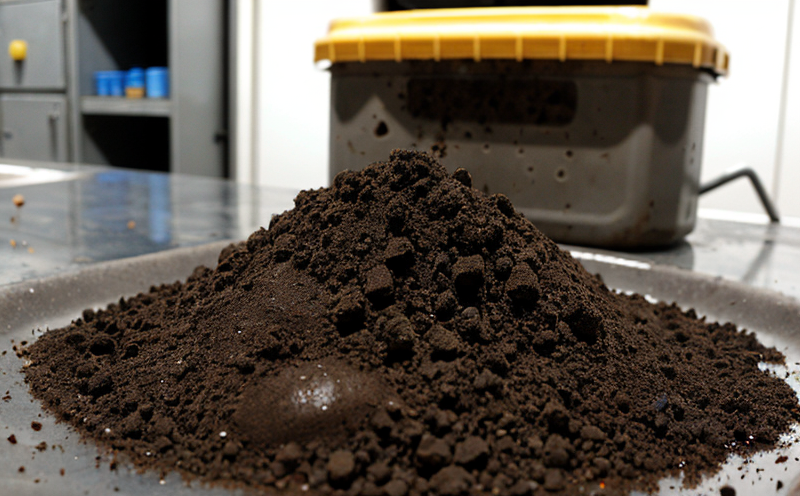Aviation Fuel Residue Testing
The aviation fuel industry is a critical pillar of global transportation infrastructure. Ensuring the quality and purity of aviation fuels is paramount to safety, compliance, and efficiency in air travel. Aviation fuel residue testing plays an indispensable role in this context by providing insights into the potential presence of contaminants that could compromise engine performance or lead to operational hazards.
Residue analysis in aviation fuel primarily targets identifying trace amounts of additives, antioxidants, and other compounds that can affect fuel stability over time. These residues are not only indicative of the fuel's quality but also its suitability for various aircraft engines and environmental conditions. This testing is particularly crucial given the stringent requirements imposed by regulatory bodies like the International Civil Aviation Organization (ICAO) and ASTM D911.
The process involves meticulous sample preparation, where the fuel is subjected to rigorous purification techniques before analysis. Modern instrumentation such as gas chromatography-mass spectrometry (GC-MS), infrared spectroscopy, and nuclear magnetic resonance (NMR) are employed for precise identification of residues. The accuracy and reliability of these tests are paramount in ensuring that fuels meet not only regulatory standards but also the stringent requirements set by manufacturers and airlines.
Understanding the scope of residue testing is essential for stakeholders involved in aviation fuel supply chains, including refineries, distributors, and operators. It helps them maintain the highest standards of quality assurance, which are critical for preventing engine failures, optimizing fuel consumption, and ensuring compliance with international regulations such as ISO 12145-1.
The significance of this testing extends beyond mere safety measures; it also contributes to the broader objectives of sustainability in aviation. By minimizing waste and optimizing fuel efficiency, residue analysis supports efforts towards reducing carbon emissions and operational costs. This makes aviation fuel residue testing a vital component not only for ensuring safe operations but also for promoting environmental stewardship.
Why It Matters
The importance of aviation fuel residue testing cannot be overstated, given the critical role it plays in maintaining the integrity and performance of aircraft engines. Contaminants such as water, particulates, and organic compounds can accumulate over time, leading to premature wear and tear on engine components. These residues not only affect the lifespan of the equipment but also increase the risk of operational failures during flight.
- Enhanced Safety: By identifying contaminants early through residue testing, operators can take proactive measures to address potential issues before they escalate into safety hazards.
- Regulatory Compliance: Adhering to ICAO and ASTM standards ensures that fuels meet the necessary criteria for safe and efficient operation of aircraft.
The impact of residue testing is particularly pronounced in high-stress environments where fuel quality can significantly influence performance. Airlines, maintenance crews, and regulatory bodies rely heavily on accurate residue analysis to uphold safety standards and operational reliability.
Benefits
- Promotes Safety: Identifying and mitigating the presence of contaminants ensures that engines operate under optimal conditions, reducing the risk of malfunctions in flight.
- Sustains Engine Lifespan: Regular residue testing helps prevent the build-up of harmful residues, thereby extending the service life of aircraft engines.
- Enhances Efficiency: By maintaining fuel purity, this testing optimizes engine performance and reduces unnecessary wear on critical components.
The benefits extend to broader operational efficiency as well. Airlines can optimize their maintenance schedules based on residue analysis results, leading to reduced downtime and lower operational costs. Additionally, the ability to consistently meet stringent quality standards enhances an operator's reputation for reliability and safety.
Quality and Reliability Assurance
- ISO Compliance: Our laboratory adheres to ISO 17025 accreditation, ensuring that all tests meet the highest standards of accuracy and reliability.
- ASTM Standards: We rigorously follow ASTM D911 and other relevant standards to provide precise residue analysis.
The quality assurance framework at our laboratory is robust, encompassing stringent protocols for sample preparation, data interpretation, and reporting. Our commitment to maintaining these high standards ensures that every test result is reliable and actionable. This dedication to excellence supports the continuous improvement of aviation fuel quality across the industry.





